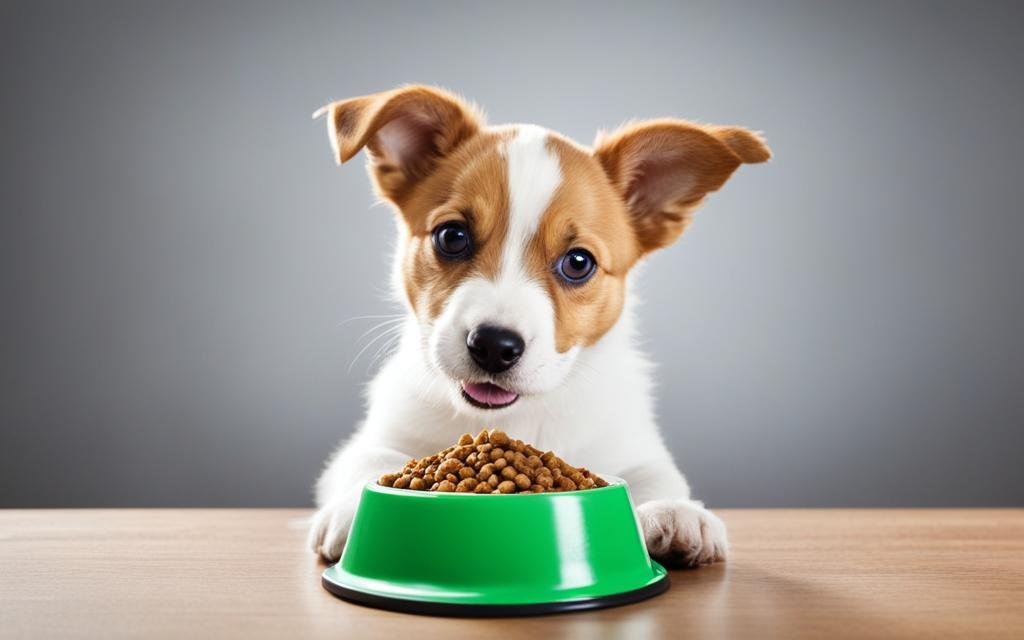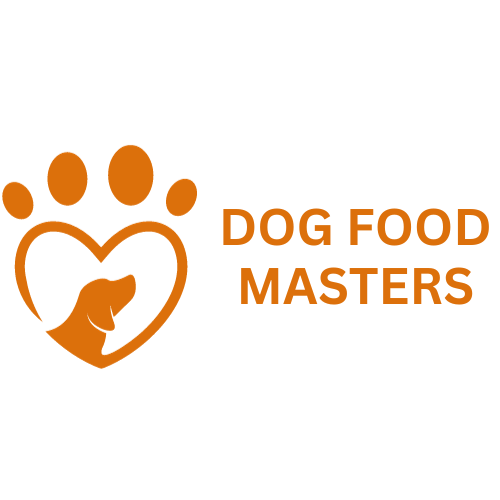
Picture this: Your puppy, with those big, curious eyes, is nosing around the food bowl of your older dog. Maybe they even grab a few bites of the bigger dog’s food! As adorable as it seems, you might wonder, Can puppies safely eat adult dog food? After all, it’s all dog food, right?
While an occasional nibble may not seem like a big deal, there are important reasons why puppies need a diet specifically tailored to their needs. In this blog post, we’ll break down why feeding adult dog food to puppies isn’t a great idea, how puppies’ nutritional needs differ, and what could happen if your puppy consistently eats food meant for adult dogs.
Understanding the Nutritional Needs of Puppies vs. Adult Dogs
Puppies are in a stage of rapid growth and development. Their bones, muscles, organs, and immune systems are all still forming, which means they need a nutrient-rich diet. While adult dog food is designed to maintain a dog’s health, puppy food is specially formulated to support their growth and development.
1. Higher Calorie Requirements
Puppies are bundles of energy, constantly playing, exploring, and learning about the world around them. This high energy expenditure means they need more calories than adult dogs. Puppy food typically contains more calories per serving to support their energy needs without overloading their small stomachs.
- What happens if they eat adult dog food? Adult dog food doesn’t provide the high-calorie punch that growing puppies need. If a puppy consistently eats adult dog food, they may not get enough energy for healthy growth, leading to slower development or even malnutrition.
2. Protein: The Building Block of Growth
Protein is essential for the development of muscles, tissues, and organs in puppies. Puppy food contains higher levels of protein to fuel this rapid growth phase. Adult dogs don’t need as much protein, so adult dog food contains less.
- What happens if they eat adult dog food? If your puppy eats adult dog food, they may not get enough protein to support their growing bodies, potentially leading to stunted growth and weaker muscles.
3. Calcium and Phosphorus: Bone and Teeth Development
Calcium and phosphorus are crucial for the development of strong bones and teeth in puppies. Puppy food has the right balance of these minerals to support skeletal growth. In contrast, adult dog food contains lower levels, as adult dogs’ bones are already fully developed.
- What happens if they eat adult dog food? A lack of sufficient calcium and phosphorus during the crucial growth phase could lead to weaker bones, increasing the risk of fractures and developmental bone disorders like hip dysplasia or osteoporosis in later life.
4. Fat: Fuel for Growth
Puppies need a higher fat content in their diet compared to adult dogs. Fat provides a concentrated source of energy that’s easy to digest and essential for brain development and a healthy coat.
- What happens if they eat adult dog food? If a puppy consumes adult dog food, which is lower in fat, they may not receive the energy they need to grow at a healthy rate. It could also impact their brain development and lead to dry, flaky skin or a dull coat.
5. Vitamins and Minerals
Puppy food is fortified with vitamins and minerals essential for proper development. For example, DHA (docosahexaenoic acid), an omega-3 fatty acid, is important for brain and eye development in puppies. Adult dog food, on the other hand, might not have these in the quantities puppies need.
- What happens if they eat adult dog food? The lack of sufficient vitamins and minerals, especially DHA, could affect cognitive development, meaning your puppy might not develop to their full potential in terms of learning and memory.
Occasional Bites: Is it Harmful?
So, if your puppy sneaks a few bites of adult dog food now and then, is it harmful? In small amounts, it’s usually not something to worry about. But if your puppy regularly eats adult dog food, it can lead to long-term health issues and developmental delays.
It’s also worth noting that feeding a puppy a diet primarily made up of adult dog food can be dangerous over time. While you might not notice the effects right away, over months or years, your dog may experience health problems due to nutritional deficiencies.
What Can Happen if Puppies Consistently Eat Adult Dog Food?
If your puppy consistently eats adult dog food, it could lead to several issues:
1. Stunted Growth
As mentioned earlier, puppies need the right balance of nutrients, including protein, calcium, and fat. Without these, their growth can be affected, leading to a smaller, weaker adult dog.
2. Weaker Immune System
Puppy food contains nutrients like antioxidants and DHA, which are essential for developing a strong immune system. A diet lacking in these nutrients could make your puppy more susceptible to illnesses and infections.
3. Increased Risk of Obesity
Interestingly, if puppies eat adult dog food, they may become overweight. How? Since they aren’t getting enough calories and nutrients from their food, they might overeat to compensate. This can lead to excessive weight gain, which brings its own set of health problems, like joint issues and heart disease.
4. Behavioral Issues
Nutritional deficiencies can also affect your puppy’s brain development, leading to learning difficulties and behavioral problems. Puppies on an improper diet may be more anxious, less responsive to training, or struggle to learn commands.
5. Long-term Health Problems
Over time, a puppy that eats adult dog food may develop long-term health issues like joint problems, poor muscle development, or digestive issues. These problems may not show up right away, but they can affect your dog’s health as they grow into adulthood.
How Long Should Puppies Eat Puppy Food?
Puppies should stay on puppy food until they reach about 80% of their expected adult size, which is typically around 12 months for most breeds. However, large and giant breed dogs, such as Great Danes or Mastiffs, may need to stay on puppy food until they are around 18-24 months old.
If you’re unsure when to transition your puppy to adult dog food, consult your veterinarian for advice tailored to your puppy’s specific needs.
Conclusion: Stick to Puppy Food for the Best Start
To sum up, can puppies safely eat adult dog food? An occasional nibble likely won’t harm them, but regularly feeding adult dog food to a puppy can lead to nutritional imbalances and long-term health problems. Puppies have unique dietary needs that adult dog food just doesn’t meet.
To give your puppy the best start in life, stick to high-quality puppy food until they’re ready for the transition to adult dog food. Always check with your vet to ensure that your puppy’s diet is meeting their nutritional needs, and keep the older dog’s food out of reach to prevent any accidental snacking!
By choosing the right food for your growing pup, you’re setting them up for a long, healthy, and happy life!

